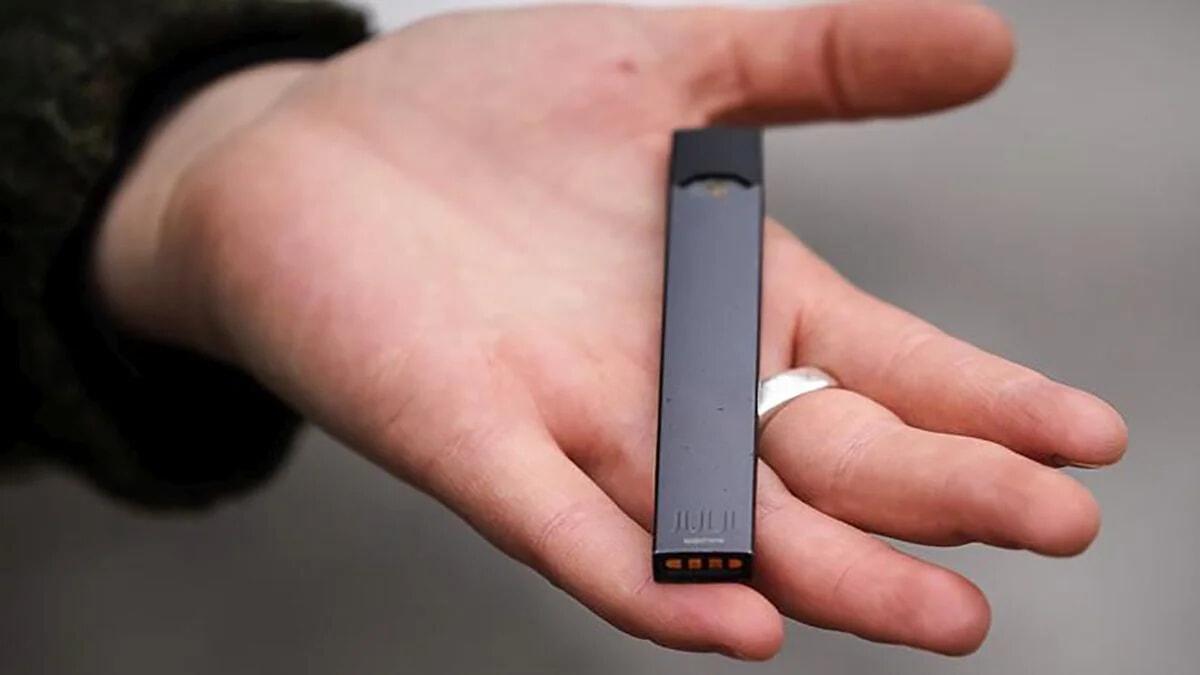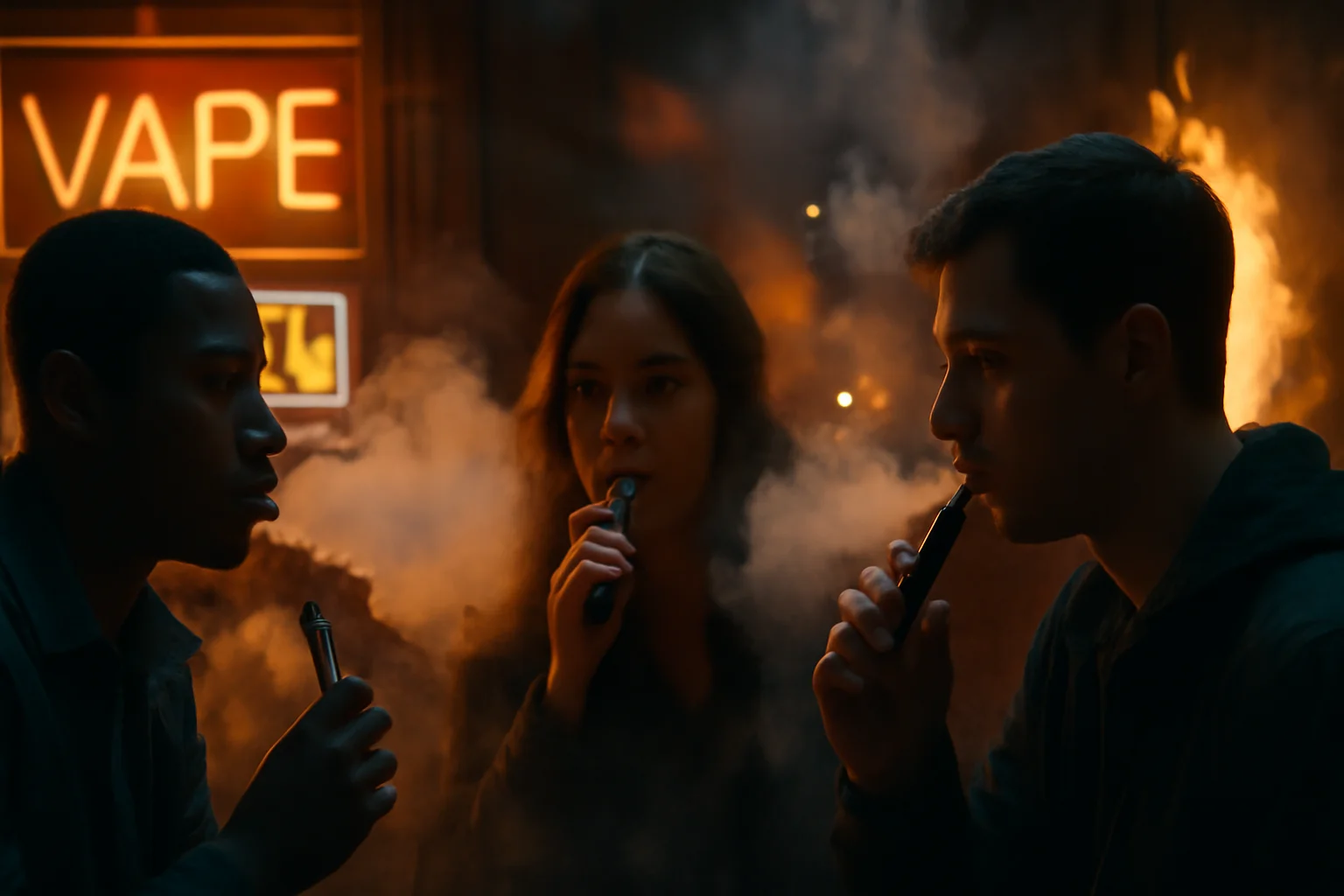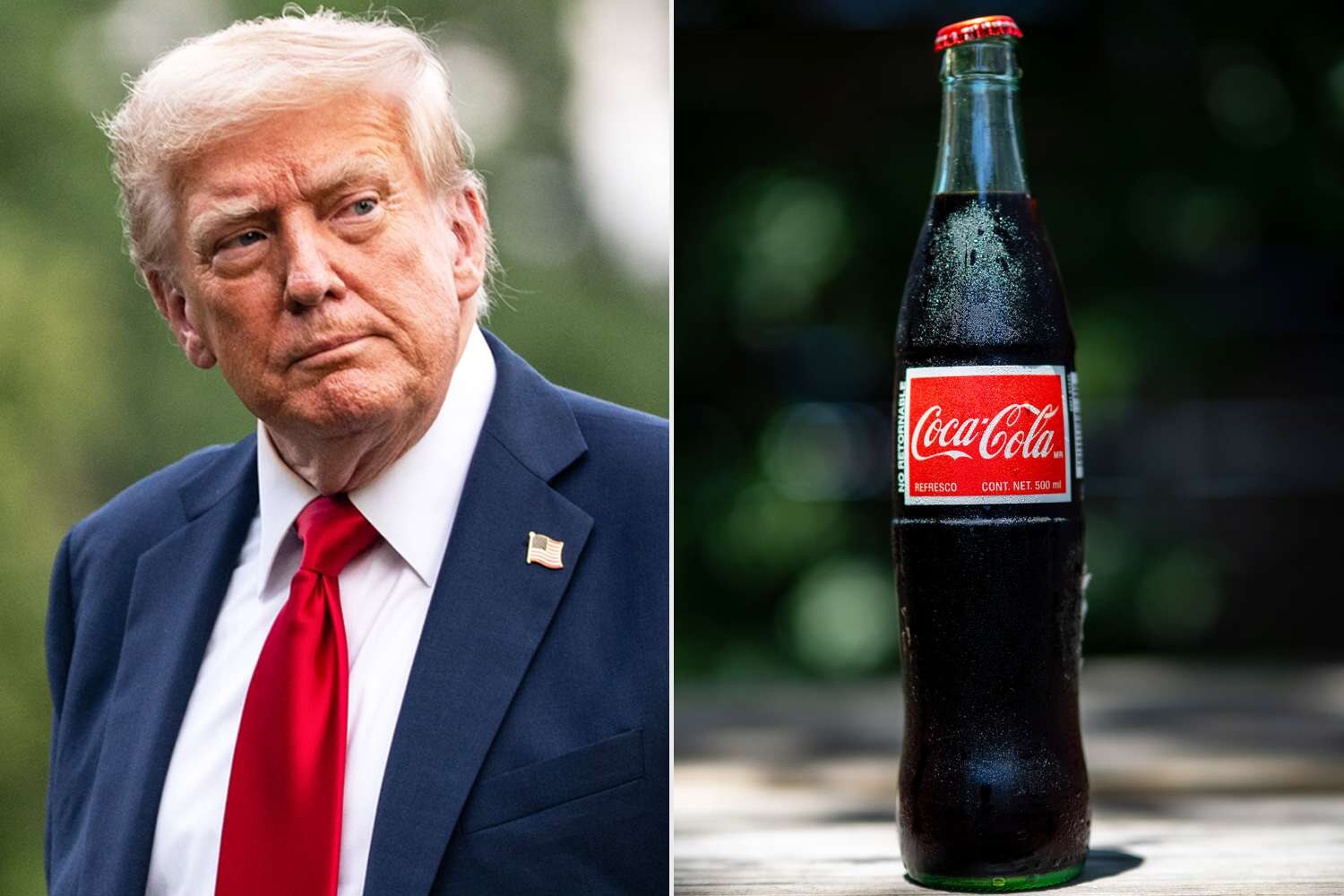
Juul Gets OK to Continue Selling Vapes After FDA Reverses Yearslong Ban
Wild. That's back.
Published July 21, 2025
Advertisement
Advertisement
1. The Comeback Nobody Saw Coming

For years, Juul Labs stood as the lightning rod of the vaping world, both reviled and revered, shaping a new era of nicotine consumption and igniting debates in classrooms, courtrooms, and Capitol Hill.Once synonymous with the rise of vaping among American teens, Juul’s trajectory went from stratospheric highs to regulatory free fall, battered by lawsuits and the wrath of health authorities.The company’s e-cigarettes—sleek, small, and loaded with nicotine—quickly became a cultural phenomenon, their popularity among underage users fueling an unprecedented public health backlash.As public concern reached fever pitch, federal investigations and lawsuits mounted, pressuring Juul to pull its once-popular fruit and dessert flavors and restrict its marketing.In June 2022, the U.S. Food and Drug Administration (FDA) seemed to deliver the final blow, ordering Juul’s signature devices and pods off the shelves in a move that stunned the industry.Facing plummeting sales and the looming threat of bankruptcy, Juul scrambled to defend itself in court, contending that regulators had overlooked thousands of pages of crucial scientific data.The FDA quickly suspended its own ban, placing Juul’s fate in regulatory limbo while a fresh review got underway—leaving the company, its employees, and millions of users in anxious suspense.Over the next two years, Juul’s fortunes hung in the balance as it awaited the outcome of a high-stakes scientific evaluation.Anticipation and frustration mounted, not just for Juul but for an industry watching closely to see if a path forward existed for vaping in the U.S.This week, that uncertainty finally broke: The FDA announced that Juul could remain on the market, setting the stage for a new chapter in the story of American nicotine.
Advertisement
2. FDA Reverses Course

Thursday’s FDA decision represented the dramatic conclusion of a saga that had pitted scientific review against mounting social anxiety, industry survival against public health concerns.After an “extensive scientific review,” the agency ruled that Juul’s original e-cigarette device and its tobacco and menthol pods could once again be sold in the United States, provided they targeted adults 21 and older.The decision marked a full reversal of the FDA’s 2022 ban and signaled that, for now, Juul had satisfied regulators that its products could serve as a harm reduction tool for adult smokers.In its announcement, the FDA was explicit: the products are not “safe,” nor are they “FDA approved” in the traditional sense, but Juul’s evidence demonstrated a benefit for public health, particularly among adults trying to quit traditional cigarettes.Scientific data showed high rates of smokers fully switching from cigarettes to Juul’s tobacco- or menthol-flavored products—a key factor in the FDA’s calculus.The decision did not come lightly; it followed years of industry-wide turmoil and a global spotlight on youth vaping, advertising tactics, and nicotine addiction.Juul’s leadership, breathing a sigh of relief, affirmed their support for “orderly, reliable” nicotine markets and reiterated their commitment to “rigorous research” and responsible marketing.Despite the agency’s reversal, critics and anti-tobacco advocates immediately sounded the alarm, warning that the decision could jeopardize hard-fought progress in curbing youth e-cigarette use.Juul, for its part, insisted that the future of nicotine lies in regulated, science-backed products designed for adults, not kids.The story was far from over, but the message from regulators was clear: harm reduction, not prohibition, would define this moment in U.S. tobacco policy.
Advertisement
3. The Youth Vaping Crisis

The FDA’s decision arrived in the long shadow of America’s youth vaping epidemic—a crisis many attribute directly to Juul’s rapid rise and runaway popularity among teenagers.Sleek, concealable, and offered in enticing flavors, Juul devices swept through high schools and middle schools, their signature pods containing powerful doses of nicotine that left many teens quickly addicted.By the late 2010s, Juul had become a household name and a cultural flashpoint, its brightly colored ads and viral social media presence drawing the ire of parents, educators, and lawmakers.Federal and state authorities moved swiftly: lawsuits accused Juul of targeting minors, and settlements totaling billions forced the company to overhaul its advertising and pull sweet and fruity flavors from the market.Public health organizations, from the Campaign for Tobacco-Free Kids to the American Lung Association, cast Juul as the architect of a new generation’s addiction—a view echoed in Congress and the courts.In defending its practices, Juul denied intentionally marketing to children and pointed to plummeting rates of underage use after it reined in flavors and promotional efforts.Despite these changes, more than 1.6 million students reported using e-cigarettes in 2024, a testament to both the company’s lasting influence and the scope of the crisis.The FDA’s authorization now leaves only tobacco and menthol pods available, both in 3% and 5% nicotine strengths, an effort to restrict youth access while supporting adult smokers seeking alternatives.This delicate balance—reducing harm for adults while protecting kids—will remain the defining tension for Juul and the vaping industry at large.As the dust settles, advocates and opponents alike will be watching for any sign of a return to the days when Juul’s name was shorthand for youth vaping’s worst excesses.
Advertisement
4. Scientific Showdown

The FDA’s pathway to this moment was paved by years of contentious scientific debate, legal maneuvering, and policy shifts, each step scrutinized by the public and the press.After the 2022 ban, Juul’s legal team argued that regulators had failed to properly consider critical data on the product’s chemistry, toxicity, and impact on smokers’ health.The FDA, facing lawsuits and mounting pressure, reopened its review, demanding even more evidence to assess the risks and benefits of Juul’s nicotine delivery system.This time, the company delivered a mountain of scientific documentation, showing that adult smokers who switched to Juul significantly reduced their exposure to known carcinogens found in cigarettes.Independent experts, meanwhile, weighed the promise of harm reduction against lingering fears of teen addiction and the unknown long-term effects of e-cigarette use.Critics accused the FDA of moving too slowly on some products and too hastily on others, as black market imports and new disposable vapes continued to skirt regulation.After years of deliberation, the agency ultimately authorized only five Juul products: the original device and two flavors, each in two nicotine strengths, setting a new regulatory benchmark for the industry.Even so, the FDA cautioned that people who do not currently smoke should never use e-cigarettes—Juul’s or anyone else’s.The verdict left both sides unsatisfied, but established a precedent for future reviews, placing the onus on companies to show their products can genuinely serve the public good.
Advertisement
5. A Lifeline for Juul

For Juul Labs, Thursday’s announcement was more than a regulatory win—it was a lifeline for a company battered by years of crisis, lawsuits, and near-bankruptcy.Once valued at over $13 billion, Juul saw its market share and fortunes evaporate almost overnight after the 2022 FDA ban and the avalanche of legal settlements that followed.The company was forced to cut hundreds of jobs, pay out billions, and halt the sale of nearly all its flavored pods, once the source of its meteoric growth.Juul’s financial struggles were compounded by the rise of competitors like Vuse and Njoy, as well as a flood of illicit disposable vapes from overseas.The FDA’s decision to allow tobacco and menthol pods back on the market doesn’t restore Juul’s former glory, but it gives the embattled brand a chance to survive and, possibly, rebuild.CEO K.C. Crosthwaite called the move a “significant milestone,” promising further research, more FDA applications, and an ongoing commitment to regulatory compliance.Analysts noted that with official authorization, Juul could once again seek outside investment, restructure debt, and fight to regain relevance in a crowded and shifting marketplace.Still, the company faces an uphill climb, as many former users have moved on to other brands or quit vaping altogether.The FDA’s message was clear: the door is open, but only for those willing to play by strict, evidence-based rules.
Advertisement
6. Public Health or Corporate Comeback?

With Juul’s authorization making headlines, a fierce debate reignited over the future of vaping in America and the FDA’s role as gatekeeper.Public health leaders, like Yolonda Richardson of the Campaign for Tobacco-Free Kids, slammed the decision as a “big step in the wrong direction,” arguing it could roll back years of progress in reducing youth nicotine use.They pointed to Juul’s history and enduring appeal to young people, insisting that no amount of scientific review could erase the brand’s legacy as the face of the teen vaping epidemic.The American Lung Association echoed these concerns, blaming Juul for “hooking a generation of kids” and warning of a new wave of nicotine addiction.Juul’s defenders countered that the FDA’s review process was among the world’s strictest, and that regulated vaping could help millions of adults quit deadly cigarettes.Industry groups hailed the move as a sign that American innovation and harm reduction could coexist under vigilant oversight.Yet for many, the central question remains: Can the same company blamed for igniting a crisis now be trusted to help end it?As news outlets, school boards, and state legislatures weigh in, the national conversation has only grown louder, proof that the story of vaping’s place in American life is far from finished.
Advertisement
7. Global Ripple Effects

Juul’s long battle with U.S. regulators has had far-reaching effects, reshaping the global landscape of nicotine, technology, and public health policy.Other countries watched closely as the FDA debated whether to ban or authorize Juul, each decision reverberating through their own regulatory agencies.The FDA’s ultimate endorsement of science-backed harm reduction could influence governments from Europe to Asia, many of which are still wrestling with how to balance the risks and benefits of vaping.For multinational tobacco giants and scrappy startups alike, the U.S. market remains the bellwether—where Juul goes, others may follow.Yet not all nations will be swayed; some have already banned e-cigarettes outright, citing the specter of youth addiction as reason enough.Meanwhile, a new generation of unregulated, disposable vapes—many imported illegally—continues to flood American and global markets, complicating enforcement and oversight.Juul’s authorization is a green light, but only for those willing to undergo rigorous, transparent scrutiny and to accept responsibility for the consequences.As Juul looks to expand, its success or failure will shape the future not just of one company, but of the broader war on tobacco-related harm worldwide.The eyes of the world remain fixed on Washington, eager to see if this experiment in science-based regulation can deliver on its promises.
Advertisement
8. The Competition Heats Up

Juul’s return to the legal market comes in a vastly changed landscape, with rival brands and black-market products battling for the loyalty of American consumers.Since the FDA began regulating e-cigarette devices in 2016, it has authorized just thirty-nine products for sale—including menthol vapes from Altria’s Njoy and British American Tobacco’s Vuse.Both Vuse and Njoy have already surpassed Juul in sales, leveraging their corporate muscle and ability to quickly adapt to new rules and consumer preferences.Disposable vapes from overseas, often sold in flavors long banned by regulators, now command an ever-growing share of the youth and adult markets alike.The FDA faces growing criticism from both sides: companies frustrated by slow and inconsistent approvals, and lawmakers angered by the persistent flood of unregulated products.Juul’s future success depends not just on compliance, but on its ability to win back customers who now have more choices than ever before.CEO Crosthwaite says the company is preparing to submit more applications for next-generation devices and flavors, hoping that a new era of evidence-based oversight can rebuild public trust.With the landscape in flux and regulation evolving, the battle for dominance in the American vaping market is just heating up.Only time will tell whether Juul’s scientific gamble pays off in the face of relentless competition and shifting consumer habits.
Advertisement
9. Lessons From the Edge

Juul’s roller-coaster journey has become a case study in innovation, risk, and the power of public scrutiny to force change.From its founding by Stanford graduates in 2015 to its meteoric rise and subsequent fall, the company has embodied both the promise and peril of disruptive technology in health.Its mistakes—most notably the initial embrace of sweet, teen-friendly flavors and viral marketing—sparked a backlash that continues to reverberate across industries and institutions.But Juul also pushed the FDA to clarify its authority and regulatory process, forcing a reckoning over what it means to approve or deny new nicotine products in the modern era.By surviving its near-death experience and winning FDA authorization, Juul demonstrated that scientific evidence and corporate accountability are now the price of admission for innovators in sensitive markets.For policymakers, the message is clear: regulation must be nimble, science-driven, and unafraid to revisit past decisions in light of new data.For other companies, Juul’s saga is both a warning and a roadmap—showing that the cost of ignoring social impact can be existential, but that redemption is possible through transparency and reform.The lessons will shape the future of not just vaping, but any industry where innovation and public health collide.
Advertisement
10. The Future of Vaping

With the FDA’s green light, Juul has a rare second chance—but the road ahead is riddled with uncertainty, competition, and watchful eyes.The company’s survival will hinge on its ability to keep youth usage down, maintain rigorous compliance, and deliver on promises of harm reduction for adult smokers.Advocacy groups, lawmakers, and regulators will continue to scrutinize every move, ready to intervene should signs of a new crisis emerge.For smokers desperate for a less deadly alternative, the FDA’s decision represents hope that innovation can coexist with public health priorities.Yet for parents, teachers, and medical professionals, vigilance will remain the order of the day—lest history repeat itself.As Juul pushes forward with new products and regulatory applications, it does so with the knowledge that its legacy hangs in the balance.The FDA’s decision is not an ending, but a fork in the road—one that could shape American attitudes toward nicotine and addiction for years to come.What’s certain is that the story of Juul and vaping in America is far from over, and the next chapter has only just begun.
Advertisement
Advertisement
You May Also Like






